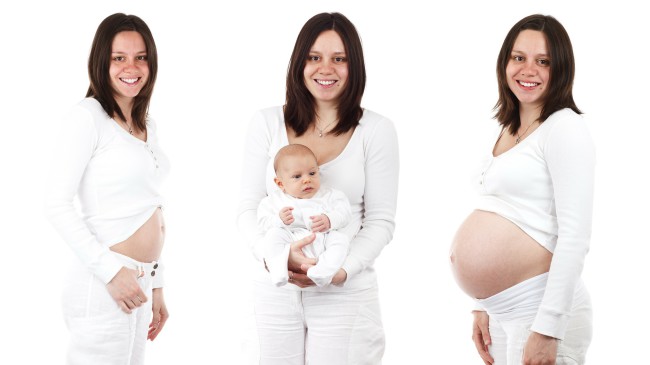One of the most important responsibilities of a mother is to provide her child with the best nutrition possible. Giving a child a solid nutritional foundation has a lifelong impact on his or her physical, mental and social development.
A mother’s nutritional status both prior to and during pregnancy will have an impact on foetal growth. It is therefore important for expectant mothers to consume adequate quantities of appropriate nutrients. It’s also important to monitor weight before and during pregnancy, and as well as after birth; work with your health care provider to determine your individual weight parameters and manage your weight accordingly.
In line with World Breastfeeding Month, Futurelife dietician Lara De Santana and FeedingMinds.org share nutritional tips for expectant and breastfeeding mothers:
Nutrition before pregnancy
Certain micronutrients, specifically iron and folate have effects on pregnancy outcome that have been shown with some consistency. Some observational studies suggest that use of micronutrient-containing prenatal vitamins before and during pregnancy is associated with reductions in the risk of;
- Congenital defects
- Pre-term delivery
- Low infant birth weight
- Preeclampsia
The reason for recommending sufficient intake of folic acid prior to pregnancy is in order to ensure the body has a healthy level of this micronutrient from the very start of foetal development. (Guideline: 400 mcg per day prior to pregnancy).
Nutrition during pregnancy
The following nutrients are notably important either at specific stages of pregnancy, and during the entire pregnancy:
1. Folate:
Folate plays a vital role in the neural tube development (into brain and spinal cord) of the baby. This development occurs in the early stages of pregnancy, which makes adequate levels of folate particularly important during this time.
Folate occurs naturally in a wide variety of foods, particularly dark green leafy vegetables. Spinach, liver, asparagus and Brussel sprouts are among the foods with the highest levels of folate. At least five servings of folate-rich vegetables and fruit are recommended per day, both prior to and during pregnancy.
Pregnant women, who are unable to meet their folate requirements by eating a sufficient quantity of foods naturally high in folate, are advised to eat foods fortified with folic acid or take folic acid supplements. A doctor or health professional should always be consulted with regard to the use of vitamin and mineral supplements. (* Folate occurs naturally in food, and folic acid is the synthetic form of this vitamin.)
2. Protein:
Plays a key role in the development of new tissue, cells, blood and bones.
3. Iron:
High levels are required during pregnancy; often iron supplements are required.
4. Iodine:
Iodine is involved in brain and nervous system development.
5. Other important nutrients:
- Zinc
- Calcium
- Vitamins A and C
“The Futurelife range of products can be used as part of a healthy eating plan during pregnancy. Not only do these high energy, high protein products along with their low GI formulation (in selected products) keep your energy levels sustained for longer; they also boast 25 vitamins and minerals including Vitamins A, C, Folic acid, Calcium, Iron and Iodine which are important nutrients during pregnancy. The Futurelife range is also ideal for busy mums as the range defines convenience, with its unique formulation it allows for an instant meal on-the-go as a shake, smoothie, and meal or even through the new SmartBar range,” says Futurelife dietician, Lara De Santana.
Nutrition during breastfeeding
Breastfeeding requires additional energy and nutrients. The nutrients that are important for a healthy supply of breast milk are similar to those that are important for a healthy pregnancy, namely protein, zinc, calcium, vitamins A and C, iron and folate.
Daily servings of milk and high protein snacks between meals or as additional small “in-between” meals are good ways to meet the additional nutritional requirements of breastfeeding.
Breastfeeding mothers require a varied and nutritious diet. This diet should include legumes, meat, fish, fruit and vegetables. In addition, as always, ensure adequate hydration. It may take up to three years for a mother’s nutritional resources to be completely replenished after she has stopped breastfeeding.
Visit the website at www.futurelife.co.za for further nutritional information and some ideas on convenient smoothie recipes.
Reference:
http://www.feedingminds.org/fileadmin/templates/feedingminds/pdf_nu/EWell_06_01-01.pdf
http://www.babycenter.com/pregnancy-eating-well
Latest posts by Contributor (see all)
- Choose the right baby wash for your baby - August 22, 2014
- Dear pre-baby me, here’s what you need to know - August 22, 2014
- Video: When toddlers play they learn skills for life - August 21, 2014
-
No Comments" href="https://all4baby.co.za/babies-6-12-months/health-hygiene-illness/1778/baby-led-weaning-blw/">

What is baby-led weaning (BLW)?
-
No Comments" href="https://all4baby.co.za/toddlers-1-2-years/parenting-a-toddler/1768/terrible-twos/">

The not so terrible twos
-
No Comments" href="https://all4baby.co.za/falling-pregnant/infertility/1747/tell-child-adopted/">

How do you tell your child that they are adopted?
-
No Comments" href="https://all4baby.co.za/pregnancy/nutrition-and-exercise/1739/tips-maintaining-healthy-fitness-routine-pregnancy/">

Tips for maintaining a healthy fitness routine during pregnancy


 Saving...
Saving...